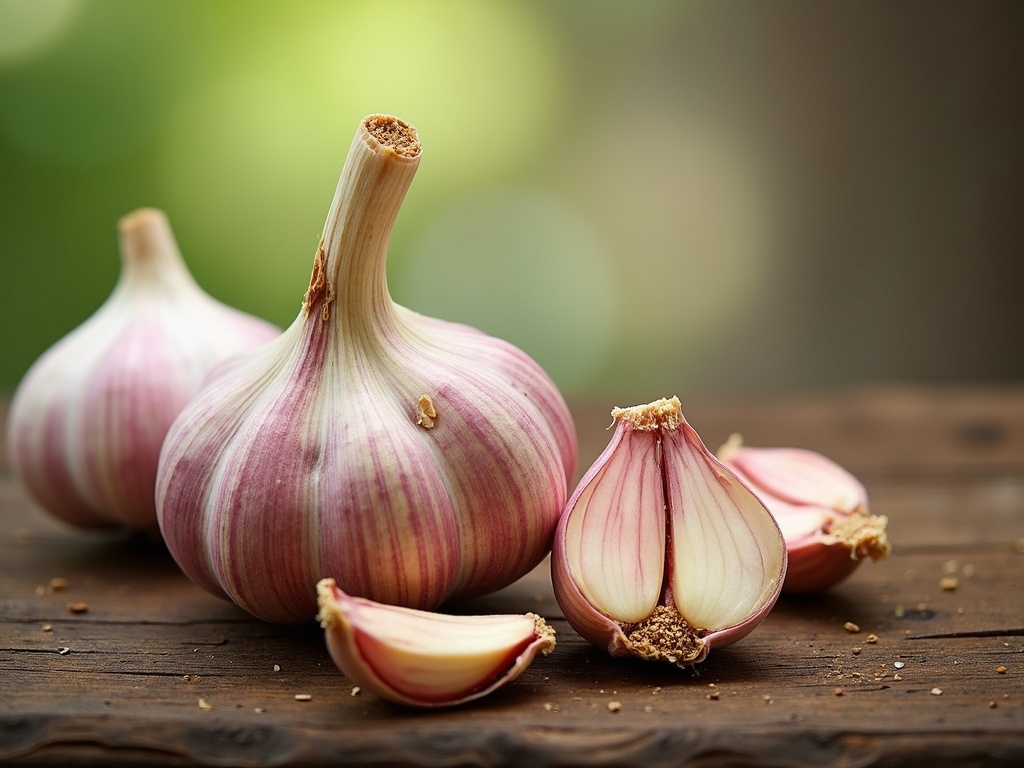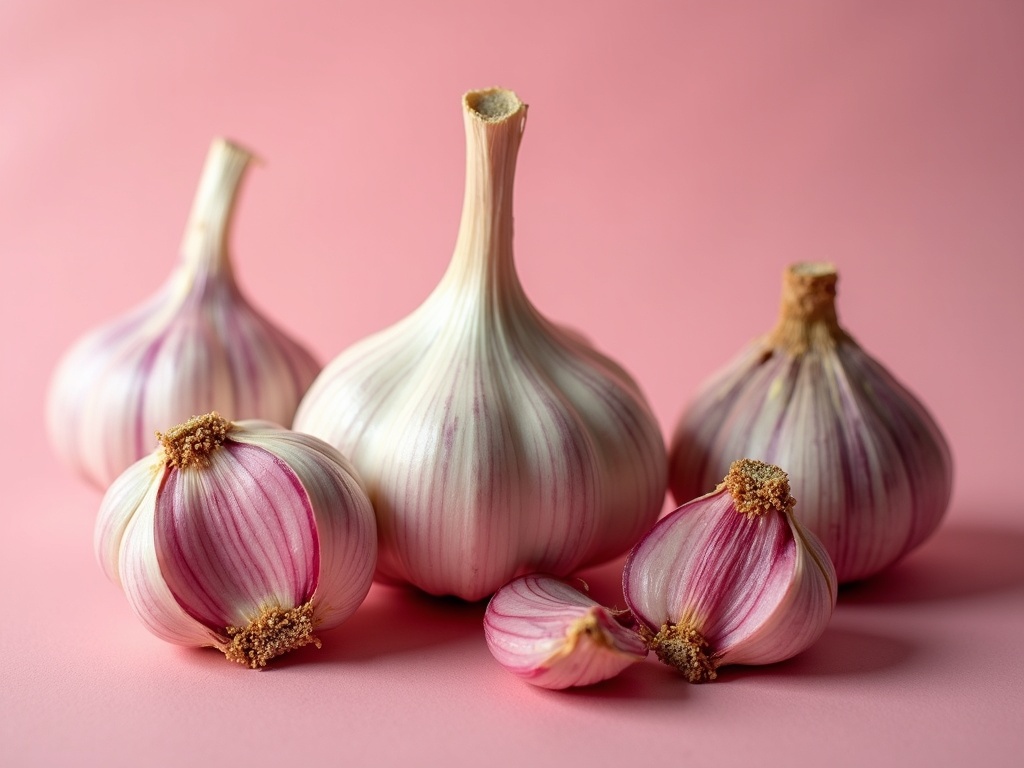Unlocking Nature's Shield: The Power of Raw Garlic for Immune Defense
Is there a humble bulb in your kitchen, brimming with the potential to fortify your body's defenses? For centuries, garlic has been revered not just as a culinary staple, but as a potent medicinal agent. In a world where immune health is paramount, understanding the power of raw garlic for immune defense is more relevant than ever. Let’s dive into the pungent world of raw garlic and discover how this natural wonder can become your ally in staying healthy.
The Immune-Boosting Arsenal of Garlic
Garlic's reputation as an immune booster is well-deserved, thanks to its unique composition. It isn't just one compound but a symphony of beneficial substances working synergistically.
Allicin: The Star Player
The most celebrated compound in garlic is allicin. This sulfur-containing compound is responsible for garlic's characteristic odor and many of its health-promoting properties. Allicin is formed when alliin, a naturally occurring amino acid in garlic, comes into contact with the enzyme alliinase when garlic is crushed or chopped. This reaction is crucial because allicin is not present in intact garlic cloves, only forming upon damage to the cell structure.
How Allicin Bolsters Immunity
Allicin's impact on the immune system is multi-faceted:
- Antimicrobial Action: Allicin exhibits broad-spectrum antimicrobial activity, combating bacteria, viruses, fungi, and parasites. This helps prevent infections from taking hold in the first place.
- Immune Cell Activation: Allicin stimulates the activity of various immune cells, including macrophages, lymphocytes, and natural killer (NK) cells. These cells are critical for identifying and eliminating threats.
- Anti-Inflammatory Effects: Chronic inflammation can weaken the immune system. Allicin helps modulate the inflammatory response, preventing immune overactivation and promoting a balanced state.
Beyond Allicin: Other Immune-Boosting Compounds
While allicin steals the spotlight, garlic contains other compounds that contribute to immune health:
- Sulfur Compounds: Diallyl sulfide, diallyl disulfide, and diallyl trisulfide, contribute to garlic's antioxidant and anti-inflammatory effects.
- Vitamins and Minerals: Garlic provides vitamin C, vitamin B6, selenium, and manganese, all essential for optimal immune function.
- Antioxidants: Garlic is rich in antioxidants that neutralize free radicals, protecting immune cells from damage and supporting their function.
Why Raw Garlic? The Heat Factor
While cooked garlic still offers some benefits, raw garlic provides a more potent immune boost. Heat can degrade allicin, the crucial compound responsible for many of garlic's medicinal properties. The enzyme alliinase, essential for allicin production, is particularly heat-sensitive. Cooking garlic can deactivate this enzyme, reducing the amount of allicin formed.
Preserving Allicin: The Art of Preparation
To maximize allicin content, consider these tips when preparing raw garlic:
- Crush or Chop: Always crush or chop garlic before consumption to initiate the alliin-alliinase reaction.
- Wait Before Cooking: If you plan to cook garlic, let it sit for about 10-15 minutes after crushing or chopping. This allows allicin to form before the heat deactivates the enzyme.
- Consume Raw: For the most potent immune boost, consume garlic raw whenever possible.
Incorporating Raw Garlic into Your Diet: Practical Tips
Integrating raw garlic into your diet doesn't have to be a daunting task. Here are some delicious and practical ways to harness its immune-boosting power:
- Garlic Honey: Combine crushed raw garlic with raw honey. Let it sit for a few days, and take a spoonful daily. Honey not only makes the garlic more palatable but also has its own immune-boosting properties.
- Garlic Lemon Water: Blend a clove of garlic with lemon juice and water for a zesty immune tonic.
- Salsa and Dips: Add minced raw garlic to homemade salsa, guacamole, or yogurt-based dips.
- Salad Dressings: Whisk minced garlic into salad dressings for an extra layer of flavor and immune support.
- Garlic Toast: Rub a clove of raw garlic on toast for a simple and flavorful snack.
Remember to start with small amounts and gradually increase your intake to avoid digestive discomfort. Listen to your body and adjust accordingly. And don't forget to keep some mints handy!
The Science-Backed Benefits: Research Roundup
The anecdotal evidence supporting garlic's immune-boosting properties is compelling, but what does the scientific research say? Numerous studies have investigated the effects of garlic and its compounds on the immune system.
Clinical Trials and Studies
Common Cold Prevention: A review of multiple studies published in the Cochrane Database of Systematic Reviews found that garlic supplementation may reduce the number of colds and shorten the duration of symptoms.
Immune Cell Activity: Research published in the Journal of Nutrition showed that aged garlic extract enhanced the activity of natural killer (NK) cells, important for fighting viral infections and tumors.
Blood Pressure Regulation: Some studies indicate that garlic consumption can help lower blood pressure, which indirectly supports immune health by reducing stress on the cardiovascular system .
Antioxidant Protection: Studies have demonstrated garlic's potent antioxidant activity, protecting cells from oxidative stress and supporting immune function.
Dosage and Considerations
While research supports the benefits of garlic, determining the optimal dosage can vary based on individual health status and tolerance. A common recommendation is to consume 1-2 cloves of raw garlic daily for immune support. However, it's essential to consider potential side effects and interactions.
- Digestive Issues: Some individuals may experience heartburn, gas, or bloating from consuming raw garlic.
- Blood Thinning: Garlic has mild blood-thinning properties, so consult your healthcare provider if you are taking blood thinners or have a bleeding disorder.
- Drug Interactions: Garlic can interact with certain medications, including some HIV medications and blood pressure drugs. Consult your doctor or pharmacist if you are taking any medications.
- Allergies: Although rare, some people may be allergic to garlic. Discontinue use if you experience allergic symptoms.
Garlic vs. Garlic Supplements: What's the Best Approach?
While fresh, raw garlic is ideal, garlic supplements offer a convenient alternative. There are various types of garlic supplements available, each with its own advantages and disadvantages.
Types of Garlic Supplements
- Aged Garlic Extract: This form is produced by soaking garlic in alcohol for up to 20 months. It is gentler on the stomach and contains stable compounds like S-allyl cysteine.
- Garlic Powder: Dehydrated garlic powder is readily available and provides a concentrated dose of garlic compounds.
- Allicin-Releasing Supplements: These supplements are designed to release allicin in the digestive tract. However, their effectiveness can vary based on the manufacturing process and individual physiology.
- Garlic Oil: Garlic oil contains volatile compounds from garlic and can be used topically or internally.
Choosing the Right Supplement
When selecting a garlic supplement, consider the following:
- Standardization: Look for supplements standardized to contain a specific amount of allicin or other active compounds.
- Enteric Coating: Enteric-coated supplements are designed to bypass the stomach and dissolve in the intestines, reducing the risk of digestive upset.
- Third-Party Testing: Choose supplements that have been tested by a third-party organization (such as NSF International or USP) to ensure quality and purity.
The Bottom Line
While supplements can be a convenient option, fresh, raw garlic offers a broader spectrum of beneficial compounds and is generally more cost-effective. If you opt for supplements, choose a reputable brand and consult your healthcare provider to determine the appropriate dosage.
Beyond Immunity: Other Health Benefits of Garlic
Garlic's benefits extend far beyond immune support. It has been traditionally used to treat a wide range of conditions, and modern research continues to uncover new potential applications.
Cardiovascular Health
Garlic has been shown to improve various cardiovascular risk factors, including:
- Lowering Blood Pressure: Garlic can help relax blood vessels and improve blood flow, leading to a reduction in blood pressure.
- Reducing Cholesterol: Garlic can lower total cholesterol and LDL (bad) cholesterol levels.
- Preventing Blood Clots: Garlic has antiplatelet effects, reducing the risk of blood clots.
Cancer Prevention
Some studies suggest that garlic consumption may be associated with a reduced risk of certain types of cancer, including:
- Stomach Cancer: Garlic may help inhibit the growth of Helicobacter pylori, a bacterium implicated in stomach cancer.
- Colon Cancer: Garlic compounds may protect against DNA damage and cell proliferation in the colon.
- Prostate Cancer: Some studies suggest that garlic may slow the growth of prostate cancer cells.
Other Potential Benefits
Garlic has also been investigated for its potential role in:
- Cognitive Function: Garlic's antioxidant and anti-inflammatory properties may protect against age-related cognitive decline.
- Bone Health: Some studies suggest that garlic may improve bone density and reduce the risk of osteoporosis.
- Detoxification: Garlic may help the body detoxify heavy metals and other toxins.
The Final Verdict: Embrace the Power of Raw Garlic
Raw garlic is a true powerhouse when it comes to immune defense. Its unique combination of allicin, sulfur compounds, vitamins, and antioxidants work synergistically to bolster your body's defenses and protect against illness. By incorporating raw garlic into your diet, you can harness its potent immune-boosting properties and unlock a world of other health benefits. So, go ahead and embrace the pungent power of raw garlic! Your immune system will thank you.

